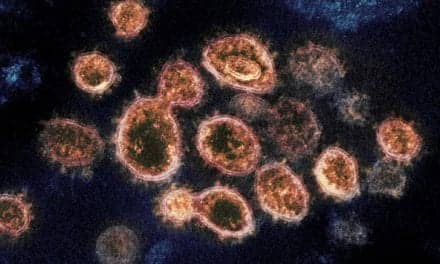A new collaborative study from Antisense Therapeutics Limited has elucidated novel blood markers as potential diagnostic and therapeutic targets in the treatment of Long COVID patients.
The collaboration to study the neurological aspects of Long COVID was made with U.S.-based researchers led by global leader in the field, Igor Koralnik, MD, at the Northwestern Medicine Neuro-COVID clinic in Chicago.
“The collaboration with Antisense Therapeutics has generated promising novel data in Long COVID-19 patients in identifying potential disease biomarkers and represents an important advance towards the goal of establishing effective disease diagnostics and interventional treatments,” says Koralnik. “We look forward to continuing our scientific collaboration with Antisense Therapeutics and to advancing such endeavors through our active involvement and support in seeking grant applications including with bodies such as the NIH.”
Through the study, three provisional patent applications have been filed in the U.S. to seek protection for these new inventions.*
How the Collaborative Study Worked
Under the collaboration, blood samples that had been collected from Long COVID patients who had not been hospitalized (focused on those with neurological symptoms including brain fog, where blood immune cell changes were observed1), were used to generate data on up to 7,000 proteins in the blood utilizing a large-scale protein analysis known as proteomics. The proteomics group Somalogic, based in Boulder, Colorado, undertook the analysis, successfully testing the samples using their SomaSca nassay, to which the data was statistically analyzed using their Dataviz program2.
The analyzed data has identified a number of proteins that are significantly modulated in the blood of Long COVID patients when compared to convalescent subjects who had recovered from Long COVID infection with no persistent symptoms and to healthy subjects. This data has been included in recently filed patent applications as potential diagnostic and therapeutic targets for the treatment of Long COVID. Certain targets when combined (as few as five) identified all 48 Neuro Covid-19 patients and the 42 of 44 subjects who were convalescent or healthy controls suggestive of these targets’ diagnostic potential.
A number of targets (<15) have been identified as potentially amenable to treatment by currently available drugs or other therapeutic approaches on the market. The mechanisms of action of those drugs are known to modulate the discovered target proteins, therefore the marketers/developers of those drugs have been identified as initial prospects for partnering interest.
A smaller number of diagnostic markers have been detected that could assist in the identification of Long Covid patients for better designed clinical trials and potentially for earlier treatment intervention. Accordingly, the Antisense Therapeutics also plans to review its newly generated intellectual property (IP) with targeted pharmaceutical and diagnostic companies for potential commercial discussions, noting that for these discussions to progress, the company and potential partner companies would need to agree on licensing and/or joint development of this newly generated IP to advance as either diagnostic or therapeutic programs.
Understanding Long COVID
Of the 94.7 million people in the U.S. diagnosed as infected and surviving COVID3, approximately 82 million (87%) people are non-hospitalized4, and 45% of non-hospitalized patients5 have developed some manifestation of Long COVID syndrome which suggests more than 24 million people are afflicted by the condition to some extent. The main neurological symptom is brain fog (defined with the established memory tests conducted) and reported in 81% suggesting an impact on nearly 20 million people in the U.S.
Identification of appropriate biomarkers of Long COVID-19 have proved elusive.6 The National Institute of Health (NIH) in the U.S. is funding a national research effort focused on understanding and treating Long COVID beyond $1 billion it has already committed.7
“We are delighted to report on the initial outcomes from this novel and leading scientific collaboration with Professor Koralnik and his team,” says George Tachas, PhD, director of drug discovery at Antisense Therapeutics. “Our data has identified potential new avenues towards diagnoses and treatment of a disease that has negatively impacted the lives of over a hundred million people around the world. We look forward to continuing scientific advancements in the space in collaboration with Professor Koralnik and the further important IP that we anticipate emerging from this important scientific collaboration.”
* Patent application names:
“Biomarkers and Uses thereof”
“Methods for treating neurological post-acute sequelae of COVID-19 (NPASC)”
“Methods for diagnosing and treating neurological post-acute sequelae of COVID-19 (NPASC)”
References
- Visvabharathy L, and Koralnik, I.J et al “Neuro-COVID long-haulers exhibit broad dysfunction in T cell memory generation and responses to vaccination.” https://www.medrxiv.org/content/10.1101/2021.08.08.21261763v3
- https://somalogic.com/stats-data-viz/ and https://somalogic.com/life-sciences/ 7,000 analytes, 450,000+ samples run, >400 publications, >500 patents.
- https://coronavirus.jhu.edu/map.html and https://www.worldometers.info/coronavirus/country/us/ as of 16 August 2022, 94.7 million people in the USA were diagnosed with COVID-19, 1.063 million deaths have been recorded, and 89.9 million people have recovered.
- Graham E.L and Koralnik I.J et al. “Persistent neurological symptoms and cognitive dysfunction in non-hospitalized COVID-19 “Long Haulers”. Ann. Clinical and Translational Neurol 2021, 8(5):1073-1085 https://onlinelibrary.wiley.com/doi/epdf/10.1002/can3.51350
- Estiri H et al “Evolving phenotypes of non-hospitalized patients that indicated long COVID”. BMC Medicine (2021) 19: 249 https://doi.org/10.1186/s12916-021-02115-0
- https://www.msn.com/en-us/health/medical/brain-fog-and-other-long-covid-symptoms-can-last-more-than-a-year-according-to-study/vi-AA10gBis
- https://www.cbsnews.com/news/long-covid-research-funding/




